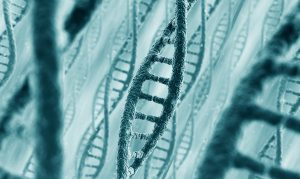 Certain aspects of our lifestyles affect our health, for instance if we smoke or drink, how much exercise we get, and even if we experienced adversity while we were growing up. But sometimes our health is linked to our genes, particularly in the case of some diseases.
Certain aspects of our lifestyles affect our health, for instance if we smoke or drink, how much exercise we get, and even if we experienced adversity while we were growing up. But sometimes our health is linked to our genes, particularly in the case of some diseases.
NCDS has been part of the largest ever investigation into the genetic underpinnings of common medical conditions such as diabetes, rheumatoid arthritis and coronary heart disease.
When you were in your mid-forties, trained nurses came to your homes to carry out health checks as part of a medically-focused NCDS visit. During that visit, many of you volunteered to give blood samples, from which we were able to extract DNA.
The scientists leading the study discovered a new genetic link between type 1 diabetes and Crohn’s disease, a bowel disorder that affects up to 60,000 people in the UK.
The results of the research, which was conducted by the Wellcome Trust Case Control Consortium, will assist healthcare professionals in identifying which genes are linked to certain conditions. This will help them understand who is at greatest risk, and in turn may lead to improved diagnosis, treatments and disease prevention.
Your DNA samples were used alongside those of other blood donors. This allowed scientists to compare a ‘control’ group of healthy people to those who have certain diseases. By doing this, scientists can start to unpick which factors – or in this case genes – might be related to different medical conditions.
The study found a number of very small but significant differences in the patterns of genes for those with certain diseases and those in the control group. For example, those with coronary artery disease were found to have a slightly different pattern of genes in a specific region of chromosome nine.
It is important to remember that these common diseases have complex sets of causes. They are part ‘nature’ and part ‘nurture’. Genes alone do not determine whether you will get a disease such as diabetes. Environment and lifestyle also have a major influence on whether an individual gets a particular disease.
However, the significance of this research is that by identifying the genes that are linked to different conditions, scientists can gain a better understanding of which people are at most risk of developing certain diseases, and how those diseases occur.